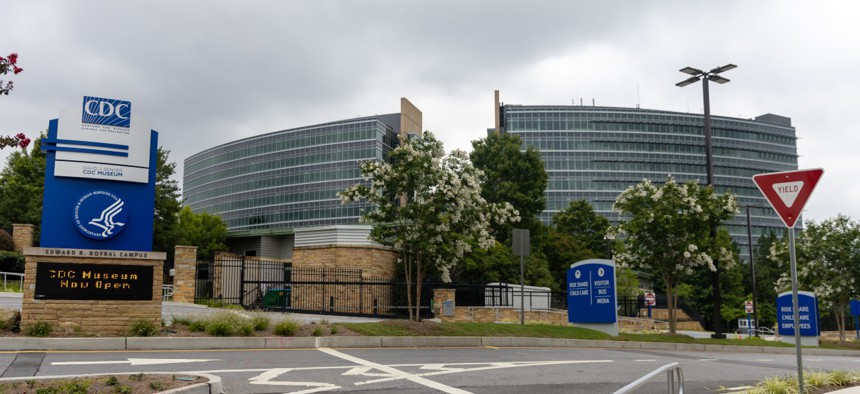
CDC headquarters in Atlanta. CDC started restructuring in April 2022 and President Biden's budget includes funds to support that effort. Anadolu Agency / Contributor Getty Images
Coronavirus Roundup: $20 Billion Requested for Pandemic and Biological Threat Preparedness
There's a lot to keep track of. Here’s a list of this week’s news updates and stories you may have missed.
President Biden’s budget request, released on Thursday, includes $20 billion in mandatory funding, available over five years, for the Administration for Strategic Preparedness and Response, Centers for Disease Control and Prevention, National Institutes of Health, and the Food and Drug Administration to support preparedness for pandemics and other biological threats.
The administration did not ask for supplemental COVID funding as it repeatedly sought in 2022.
For the CDC specifically, the budget proposal includes funding to support the agency’s restructuring, which it started in April 2022, based on issues identified during the pandemic as well as funding to improve public health data, which is something the director has told Congress the CDC desperately needs. Here are some of the other recent headlines you might have missed.
The budget proposes $16 million for the Special Inspector General for Pandemic Recovery, but the IG office “maintains $25 million is necessary to achieve optimal staffing and operational levels if Congress grants SIGPR an extension beyond 2025 and increases our jurisdiction.” The sunset extension and more jurisdiction for oversight are both things the IG office has been seeking for a while. “The proposed level of $16 million will allow SIGPR to continue operating at its current [full-time equivalents] level.”
The Office of the Director of National Intelligence released the unclassified version of its 2023 annual threat assessment this week, which says that “in addition to direct effects of the pandemic, resultant economic, human security, political, and national security implications of COVID-19 continue to strain recovery efforts, presenting both known and unforeseen challenges that probably will ripple through society and the global economy during the next year and for years to come.”
Additionally, the intelligence community continues to investigate the origins of COVID. “All agencies assess that two hypotheses are plausible explanations for the origin of COVID-19: natural exposure to an infected animal and a laboratory-associated incident,” the assessment said. “Beijing continues to hinder the global investigation, resist sharing information, and blame other countries, including the United States.”
The House voted 419-0 on Friday morning on legislation to declassify information related to the origins of COVID. The Senate already passed this, so now it goes to the president’s desk. The White House has yet to say what the president’s stance is on the legislation.
Virginia “Jenny” Rone, most recently assistant inspector general for analytics and innovation at the Agriculture Department IG office, is the new executive director of the Pandemic Response Accountability Committee. She also served at the Treasury Department’s Bureau of Fiscal Services, the Recovery Accountability and Transparency Board, and Health and Human Services Department inspector general office.
Help us understand the situation better. Are you a federal employee, contractor or military member with information, concerns, etc. about how your agency is handling the coronavirus? Email us at newstips@govexec.com.







